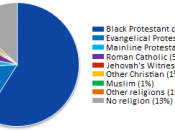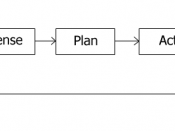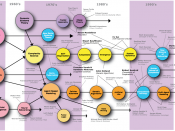Wright 1
Jeffery L. Wright
Humanities 540
Professor Bryan Feuer
23 February 2005
Models and Paradigms
Historically models and paradigms are a set of tools researchers use to recreate the reality of the historical past. Historians believe that models or paradigms help them to understand how a group or groups of people lived in the past. In addition, these models and paradigms also help individuals to act in the real world, helps people realized that are actions have consequence, but can also become problematic because they can obscure the achievements of certain individuals or races while favoring another. In the end, the unconscious past, present and emotional personal experience of the historian can have a huge impact on the historical information presented.
The growing debate today is that most models and paradigms are being considered as objective truth. Objective truths are supposed in some way to be independent of our subjective beliefs and tastes.
Yet this is not always correct. For example, to use a 2005 model to assess educational differences between African Americans and white Americans in 1802 would be invalid, because African Americans were not allowed an education during this time.
These models and paradigms can and often serve many functions. For example, theses models and paradigms can help individuals to act in the real world, help people realize that their actions have consequence but can become problematic because they can obscure the achievements of certain individuals while in favoring another.
Some historians' fear that the danger is placing too much truth behind what is written after the research is completed. The researcher has no way of checking if his/her ideology has blindsided them to a particular point of view. Each person unconscious past, present and emotional state of mind should always be questioned to ensure and honest...


